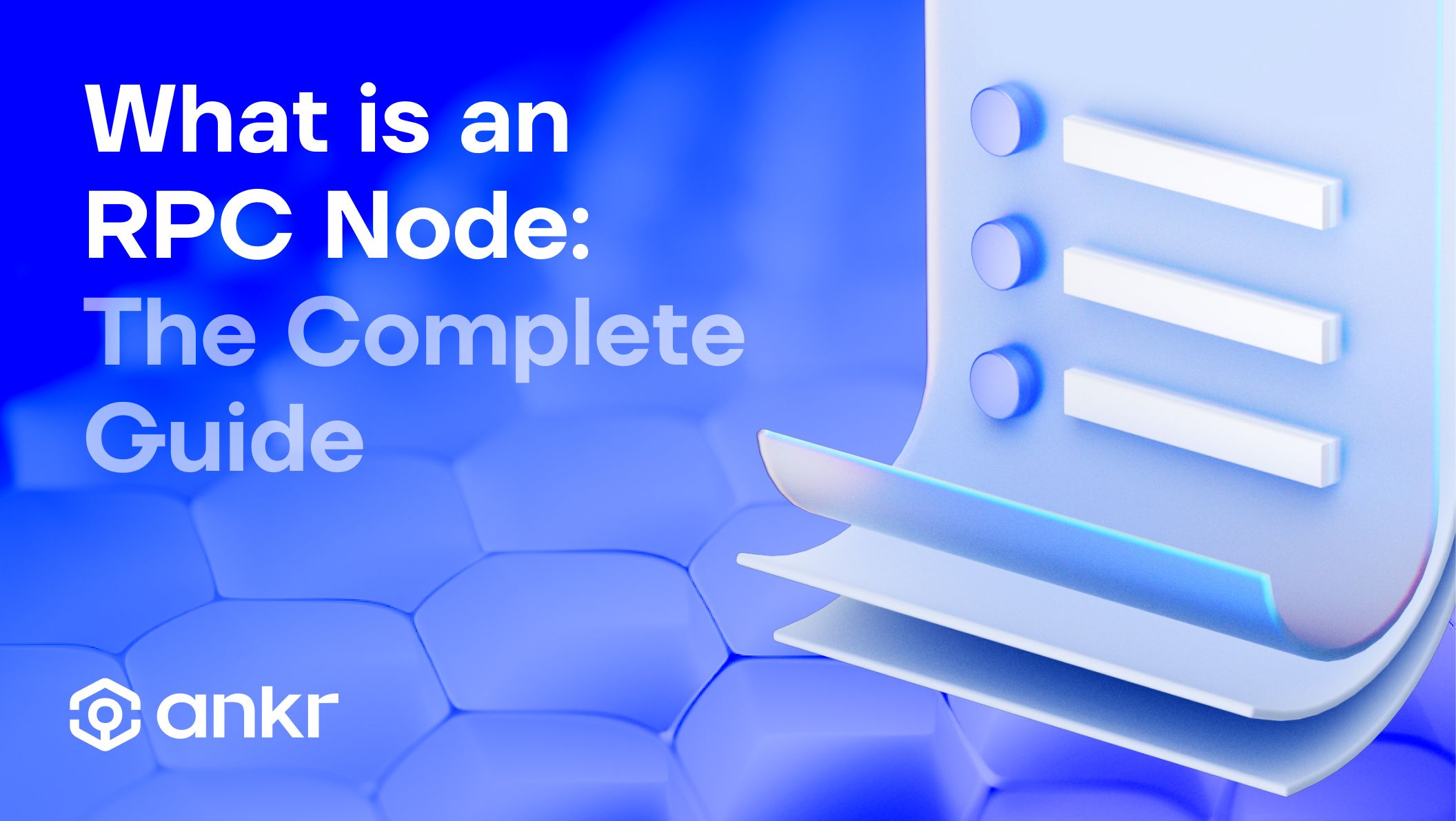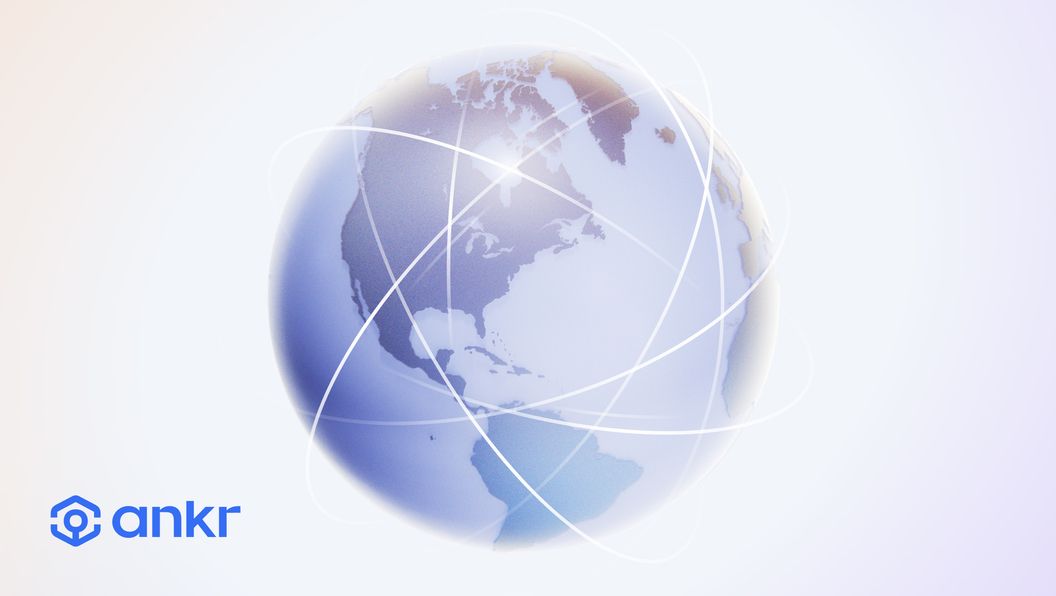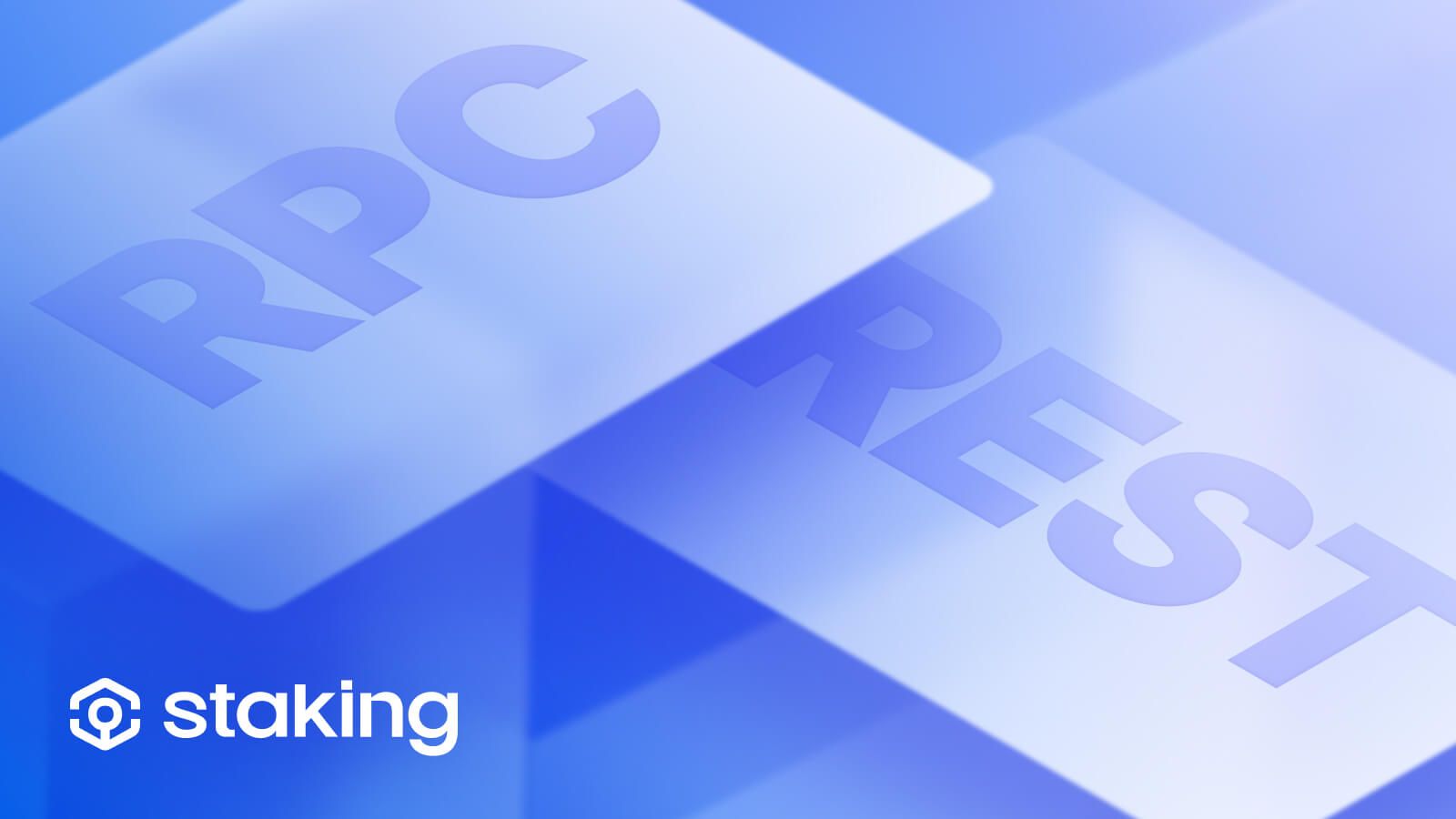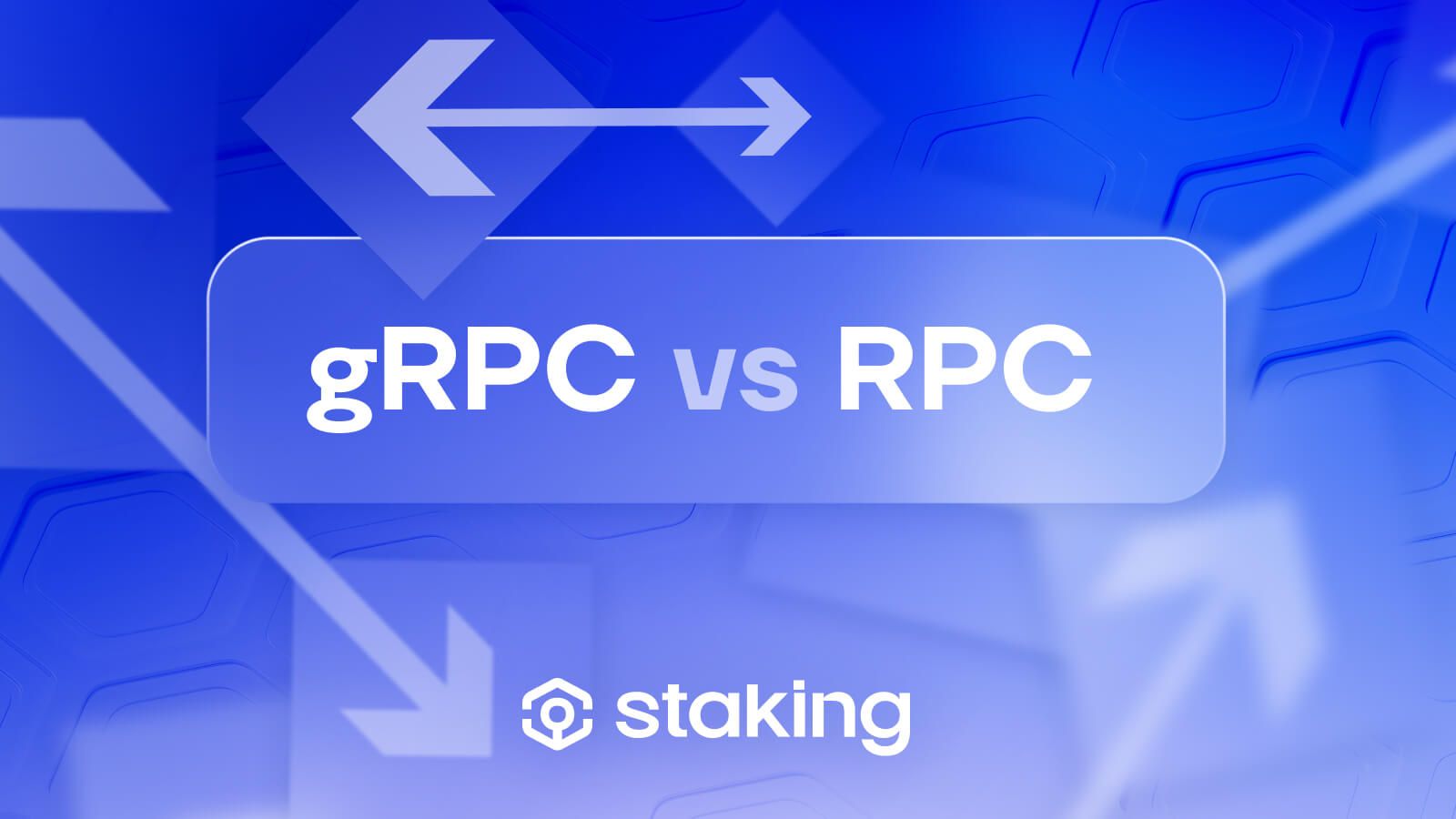What Are RPC Nodes and Endpoints? The Complete Guide [2024]

December 6, 2023
11 min read

When diving into the world of blockchain development, you’ll soon come across a variety of terms and acronyms that can get confusing! Let’s tackle one of the most common terms you may come across on your builder journey: RPC.
What are Remote Procedure Calls (RPCs)?
An RPC could be classified as a type of API (application programming interface) that allows for developers to run code that can be executed on servers remotely. And when developers build dApps with RPC capabilities, the app will be able to connect users’ requests to information from blockchains. For instance, when users access a DEX or use MetaMask to make transactions, their requests go through an RPC to connect them with the nodes that hold the data from blockchains.
Remote Procedure Calls (RPCs) can be thought of as the secret handshake of distributed systems. It's a protocol that allows a program to cause a procedure to execute in another address space (commonly on another machine).
Picture this: you have Program A on Machine X, and Program B on Machine Y. Now, Program A wants to execute a function that's in Program B. RPC is the messenger that lets A make the call and get the results, almost like A is whispering instructions to B through the digital grapevine.
The cool thing is, from A's perspective, it's just invoking a local procedure, even though the heavy lifting is happening somewhere else. It's like outsourcing tasks in the programming world, but with a fancy communication protocol. It's crucial for building distributed systems where different parts of a program can live on different devices but still need to work harmoniously.
What is an RPC Node?
In the intricate realm of blockchain technology, an RPC Node (AKA a blockchain Full Node) serves as the linchpin that facilitates communication within a decentralized network. Let's break down its pivotal role:
-
Digital Postman: Think of the RPC Node as a digital postman, ensuring messages and requests flow seamlessly between different elements of a blockchain system.
-
Transaction and Smart Contract Facilitator: When a user initiates a transaction or engages with a smart contract, the RPC Node steps in, allowing these actions to be carried out across the blockchain.
-
Behind-the-Scenes Conductor: It's essentially the behind-the-scenes conductor orchestrating a symphony of decentralized interactions, ensuring that the diverse components of a blockchain work harmoniously.
Beyond its role as a communication facilitator, an RPC Node acts as a catalyst for efficiency in blockchain operations:
-
Speed and Reliability: The RPC Node optimizes the execution of transactions, ensuring they happen swiftly and reliably.
-
Developer Interface: Developers often interface with RPC Nodes to query data, enabling the smooth functioning of decentralized applications.
In essence, an RPC Node emerges as the unsung hero in the blockchain landscape, quietly empowering the decentralized ecosystem with efficiency, responsiveness, and seamless communication.
How RPC Nodes Work
In the intricate dance of blockchain technology, RPC Nodes, short for Remote Procedure Call Nodes, function as silent architects, ensuring the smooth flow of communication and transactions within decentralized networks. Let's unveil the mechanics of how these nodes work:
-
Communication Backbone:
- RPC Nodes serve as the backbone of communication within decentralized networks.
- They facilitate the exchange of information between various components of a blockchain system.
-
Transaction Execution:
- When a user initiates a transaction or engages with a smart contract, the RPC Node intervenes to execute these actions across the blockchain.
-
Digital Facilitators:
- Analogous to digital facilitators, RPC Nodes act like intermediaries, ensuring messages and requests travel seamlessly across the blockchain.
-
Decentralized Orchestra Conductors:
- RPC Nodes act as behind-the-scenes conductors, orchestrating decentralized interactions to guarantee the harmonious operation of different blockchain elements.
-
Optimizing Speed and Reliability:
- Beyond communication, RPC Nodes optimize the speed and reliability of blockchain operations.
- They streamline the execution of transactions, ensuring rapid and dependable outcomes.
-
Developer Interaction Hub:
- Developers interface with RPC Nodes to query data, contributing to the smooth functionality of decentralized applications.
How RPC nodes enable communication between clients and blockchain networks
RPC nodes serve as the vital intermediaries that bridge the gap between clients—be it users or applications—and the expansive realm of blockchain networks.
-
Communication Conduit:
- RPC nodes act as the communication conduit, allowing clients to send requests and receive responses from the blockchain network.
-
Protocol Interpreter:
- They interpret and implement the Remote Procedure Call (RPC) protocol, which serves as the language for communication between clients and the blockchain.
-
Transaction Relay:
- When a client initiates a transaction or requests data, the RPC node efficiently relays these requests to the blockchain, ensuring seamless interaction.
-
Response Delivery:
- RPC nodes play a pivotal role in delivering the responses generated by the blockchain back to the clients, completing the communication loop.
What Are RPC Endpoints?
An RPC endpoint is a specific URL that acts as the entry point for interacting with a particular resource or function of a Remote Procedure Call. It serves as the communication channel between an RPC client (e.g., a web application or mobile app) and the RPC node.
When an RPC client sends a request to an endpoint, it specifies the desired operation and any necessary data. The RPC node then processes the request, retrieves the requested information, or performs the requested action, and sends back a response to the client.
In other words, an RPC endpoint serves as the designated access point where Remote Procedure Calls (RPCs) are initiated and processed. Think of it as the digital front door to a decentralized network, providing a specific address where clients can communicate and interact with the blockchain. This endpoint acts as a crucial interface, enabling a standardized method for clients to send requests and receive responses, fostering seamless communication within the complex landscape of distributed systems. Essentially, it's the linchpin that facilitates the language of RPCs, ensuring a streamlined and efficient exchange of information in the crypto ecosystem.
Different types of RPC endpoints
The diversity of RPC (Remote Procedure Call) endpoints within the blockchain space is a testament to the adaptability of this technology across various use cases. While the specific categorization may vary based on factors such as network architecture and blockchain protocols, we can broadly identify several types of RPC endpoints:
Basic RPC Endpoints
Basic RPC endpoints function as fundamental access points within a blockchain network, providing a simplified interface for users and applications to communicate with the underlying decentralized infrastructure. These endpoints enable Remote Procedure Calls (RPC), allowing external entities to query essential blockchain data, submit transactions, and retrieve critical network information. Serving as the foundational building blocks of interaction, basic RPC endpoints play a pivotal role in facilitating seamless communication, making blockchain functionalities accessible and manageable for users and developers alike. Their simplicity and versatility make them essential components for initiating transactions, retrieving information, and monitoring the overall state of the blockchain network.
Advanced RPC Endpoints
Advanced RPC endpoints represent a more sophisticated layer within a blockchain network, offering specialized functionalities beyond basic operations. These endpoints provide advanced features tailored to specific use cases, such as interacting with smart contracts, managing complex consensus mechanisms, or accessing advanced analytics and monitoring tools. Unlike basic RPC endpoints, their scope extends to intricate aspects of blockchain technology, catering to the needs of developers, administrators, and applications requiring nuanced control and insight. Advanced RPC endpoints contribute to the extensibility and adaptability of a blockchain network, empowering users with advanced tools to navigate and harness the full potential of decentralized systems.
Public RPC Endpoints
Public RPC endpoints serve as externally accessible gateways to a blockchain network, providing a means for developers, applications, and external entities to interact with the blockchain's functionalities. These endpoints are openly available, enabling broader participation and integration with the decentralized ecosystem. Public RPC endpoints typically offer essential operations like querying blockchain data, submitting transactions, and accessing network information, fostering a more inclusive environment for developers and applications to engage with the blockchain. This openness facilitates the seamless integration of decentralized applications (DApps) and encourages the broader development community to leverage the blockchain's capabilities, fostering innovation and collaboration in the public blockchain space.
Private RPC Endpoints
Private RPC endpoints are access points within a blockchain network that are restricted and accessible only to specific participants or entities with authorized permissions. In contrast to public RPC endpoints, which are openly available, private RPC endpoints are designed to maintain a controlled and secure environment within permissioned or consortium blockchains. These endpoints typically cater to participants who have specific roles or privileges within the network, allowing them to interact with the blockchain's functionalities according to predefined access levels. Private RPC endpoints play a crucial role in safeguarding sensitive information, ensuring that only authorized entities can execute transactions, query data, or perform other operations within the confined scope of a private blockchain network.
Custom RPC Endpoints
Custom RPC endpoints are tailored access points within a blockchain network designed to address unique functionalities or specific use cases that go beyond the standard operations offered by basic RPC interfaces. These endpoints are crafted to accommodate specialized requirements, providing a means for developers and administrators to implement custom features, consensus mechanisms, or protocol extensions. Custom RPC endpoints contribute to the adaptability of a blockchain system, allowing it to be fine-tuned to suit the distinct needs of a particular network or application. These endpoints empower blockchain architects to implement and experiment with novel functionalities, enhancing the overall flexibility and customization potential of the decentralized ecosystem.
How to Choose the Right RPC Endpoint for Your Project
Choosing the right RPC endpoint for your project involves thoughtful consideration of your project's specific requirements, security considerations, and the level of customization needed.
- Assess Project Needs: Identify required functionalities.
- Security Considerations: Evaluate sensitivity and privacy requirements.
- Accessibility: Choose between public, private, or custom endpoints based on openness needs.
- Flexibility and Customization: Consider project-specific features and extensions.
- Development Overhead: Balance customization with the development effort.
- Compatibility: Ensure compatibility with the blockchain network and project tools.
- Collaboration Requirements: Choose based on internal or external collaboration needs.
- Testing and Evaluation: Test in a development environment for performance and compatibility.
- Stay Informed: Keep abreast of updates to align with evolving blockchain technologies and project goals.
How to Run Your Own RPC Node in 5 Steps
Taking control of your blockchain interactions by running your own RPC node is a strategic move. Here's a specialist's guide in five steps to seamlessly run your RPC node:
Software Installation:
Begin by installing the official node software corresponding to the blockchain network you're engaging with. Opt for a reputable and well-maintained version to ensure reliability.
Configuration Tuning:
Fine-tune your node's settings according to your project's specifications. Adjust parameters such as RPC endpoint, port configurations, and any custom features required for your unique use case.
Network Synchronization:
Initiate the synchronization process to align your node with the chosen blockchain network. Allow time for your node to catch up with the latest transactions and updates on the network.
RPC Interface Activation:
Enable the RPC interface on your node to facilitate external access. Prioritize security by implementing robust authentication and encryption measures to safeguard your node from potential threats.
Testing and Monitoring:
Rigorously test your RPC node to validate its proper functionality. Monitor its performance closely, promptly addressing any issues that arise. Implement optimizations to enhance efficiency and responsiveness.
10 Examples of projects that use RPC nodes and Endpoints
-
Decentralized Applications (DApps): DApp developers often require RPC nodes to interact with smart contracts and access blockchain data. RPC endpoints facilitate seamless communication between DApps and the underlying blockchain network.
-
Blockchain Wallets: Wallet applications need to communicate with the blockchain to retrieve transaction history, and account balances, and perform transactions. RPC nodes provide the necessary infrastructure for wallet interactions.
-
Blockchain Explorers: Projects developing blockchain explorers, which enable users to explore and track transactions on a blockchain, often rely on RPC nodes for querying and retrieving data.
-
DeFi Platforms: Decentralized Finance (DeFi) projects that involve smart contract interactions, token swaps, and liquidity provision can benefit from RPC nodes to execute transactions and query blockchain data.
-
NFT Marketplaces: NFT (Non-Fungible Token) platforms require RPC nodes to interact with smart contracts managing NFTs. RPC endpoints facilitate the seamless integration of NFT functionalities.
-
Blockchain Analytics: Projects focusing on blockchain analytics, data analysis, or research benefit from RPC nodes to query historical data and gain insights into blockchain activities.
-
Custom Blockchain Solutions: Enterprises or developers building custom blockchain solutions often utilize RPC nodes to create tailored interactions with the blockchain network to meet specific business requirements.
-
Cross-Platform Integrations: Projects aiming for cross-platform integrations, such as integrating blockchain functionality into existing applications, can leverage RPC nodes to enable communication with the blockchain network.
-
IoT and Blockchain Integration: Internet of Things (IoT) projects that seek to integrate blockchain for secure and transparent data management may use RPC nodes to facilitate communication between devices and the blockchain.
-
Education and Testing: Educational projects and testing environments often deploy RPC nodes to provide a controlled and realistic blockchain interaction experience without interacting directly with the main network.
10 Public RPC Endpoints to start using right now!
1. Ethereum RPC; 2. BSC RPC; 3. Solana RPC; 4. SEI RPC; 5. Aptos RPC; 6. SUI RPC; 6. Optimism RPC; 7. Polygon RPC; 8. Zksync RPC: 9. Scroll RPC; 10. Arbitrum RPC;
Join the Conversation on Ankr’s Channels
Twitter | Telegram Announcements | Telegram English Chat | Help Desk | Discord | YouTube | LinkedIn | Instagram | Ankr Staking







